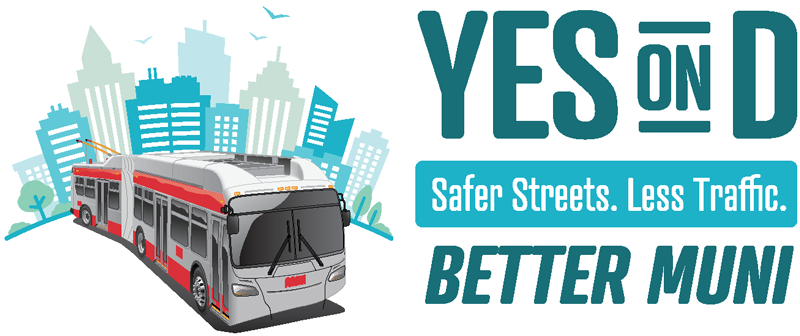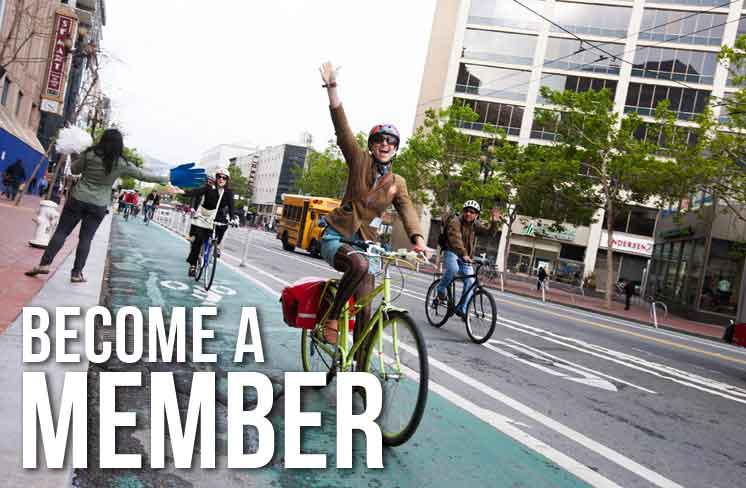Our streets are flooded with cars like never before.
In a public opinion poll commissioned by the SF Chamber of Commerce earlier this year, 82% of respondents said congestion has gotten worse in the last few years. You feel it too, from the influx of drivers parked in bike lanes or the crunch you feel biking anywhere downtown. So what’s really happening on our streets?
While California’s car culture still thrives, a new phenomenon has brewed over the past decade: ridesharing. Recent reports show that companies like Uber and Lyft make up 13% of all vehicle miles traveled in San Francisco. Uber and Lyft trips alone account for 1.2 million miles a day. And during a targeted, two-month enforcement effort that the SF Police Department conducted in 2017, our traffic enforcement officers found that TNC drivers committed 64% of downtown traffic violations during this time period.
The concept of ridesharing is so new that even the term has evolved several times over. Some may question who is providing the “rides” and what’s actually being “shared” in the term “rideshare.” In California, a common term used is transportation network company to broadly describe private entities that profit off of the use of public streets and infrastructure. Some of these companies prefer the term mobility as a service to describe the shift from needing to own a car for transportation to the ability to instead hail a car on demand as a transportation service.
Whatever you call it, we are grappling with the negative impacts as policy makers struggle to keep up with the pace of these emerging mobility services and technologies. What can we do to reinvest in our city, our streets, and our people?
This November, San Francisco voters finally have an opportunity to require companies like Uber and Lyft to invest in Muni and street safety.
Proposition D asks voters whether we should levy a business tax on rideshare companies like Uber and Lyft through a 3.25% tax on every trip that starts in San Francisco. Half of the estimated $30 million raised annually would go to Muni to improve transit service and reliability while the other half would go to funding bicycle and pedestrian street safety projects. Your San Francisco Bicycle Coalition is proud to endorse Proposition D.
We know that this tax is far from a panacea to heal our congestion ills, but this is a small yet mighty measure. Yes on D means that we recognize companies like Uber and Lyft need to pay into our transportation system. As rideshare companies put an increasing impact on our streets and our bike lanes, Yes on D says that those companies need to share a portion of their profits rather than continuing to cede public goods to private gains. Vote Yes on D.


